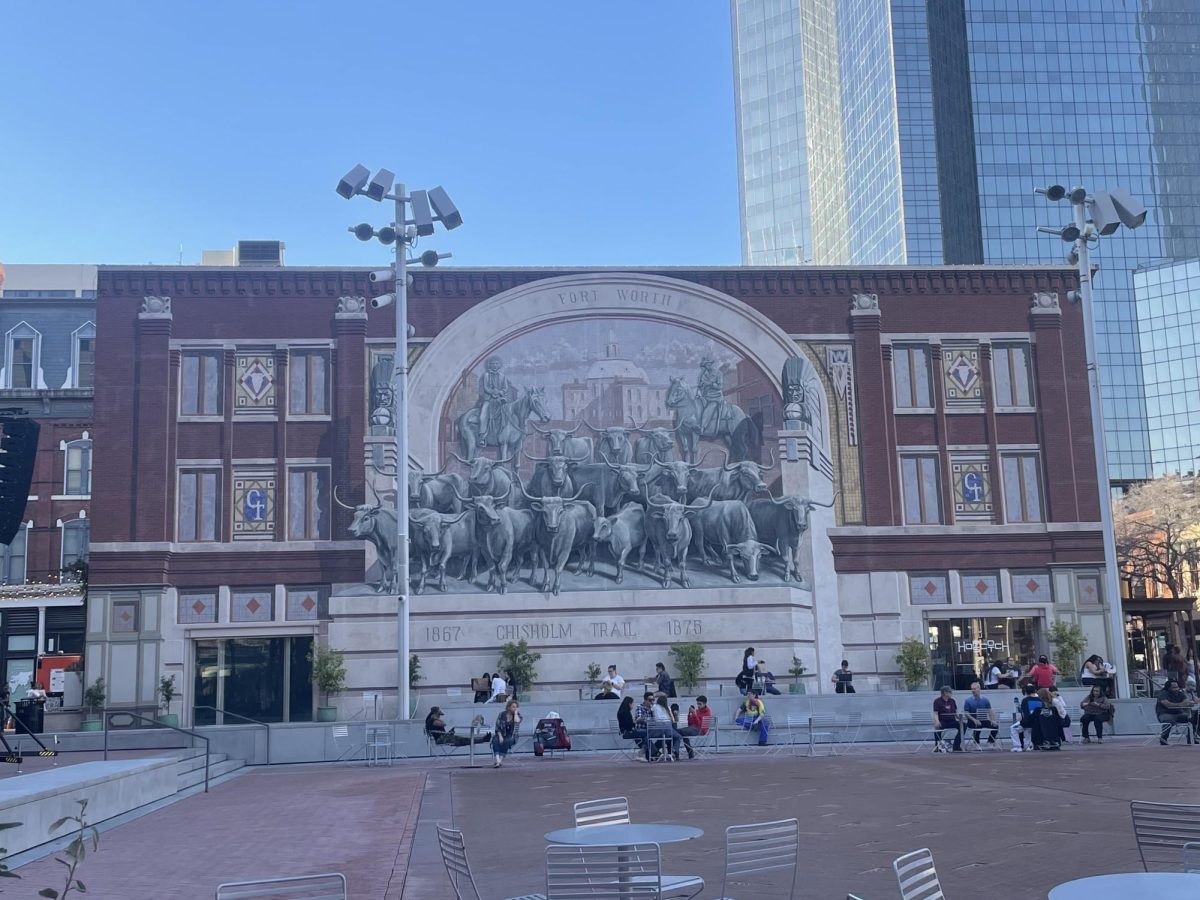More than 16 percent of Fort Worth residents are refugees who have fled persecution from their home country.
According to the United Nations High Commissioner for Refugees, at least 35 million people in the world have been forced to flee their country to escape life-threatening persecution. The office of Refugee Resettlement’s last annual report showed that in one year 8,812 of the 74,654 refugees in America resided in Texas.
According to City-Data.com, Fort Worth is the home to 85,551 refugees. Refugees never lose their refugee status. Ashley Freeman, a match grant specialist at Refugee Services of Texas said in Fort Worth, refugees represent a large portion of the employee population at Omni Hotel, Sushi Axiom, and many cell phone refurbishing companies.
Refugee Services of Texas, Catholic Charities Fort Worth and World Relief are among the multiple privately and governmentally subsidized refugee programs in Fort Worth that help people like Khani.
Kate Blackburn with Catholic Charities Fort Worth said that their intent is to integrate refugees into American culture as smoothly as possible. For their first six months in Fort Worth refugees live on the support of refugee services.
“They’re not coming to our country to live off our welfare system. I hate when people say that. It’s just not true,” Freeman said. One goal of Refugee Services of Texas is to establish the refugees’ self-sufficiency.
Until refugees can afford their rent, Refugee Services of Texas will pay their rent of $399 each month, for a maximum of six months. Refugee services also assist with integration through private mentors who provide English lessons and help with practical tasks like how to shop for groceries. In six months, refugees will have been given the tools to support themselves. They will have learned how to manage food stamps, medical insurance and Social Security.
Freeman said all of the refugees she works with find jobs within six months. Her goal is to have them working by their third month.
After two months in Fort Worth, Farzaneh Khani has identification, an apartment, a job interview and an appointment to take her driving test.
Khani and her husband came from Esfahan, Iran. She said they were forced to leave after converting from Islam to the Baha’i Faith.
“I have no special plan but to find a good job and earn enough to live. Refugee Services has helped us a lot…it is very important to us,” Khani said.
Claire Nicholas works as a volunteer coordinator at Refugee Service of Texas. She manages volunteers who want to mentor refugees.
“I don’t have to travel abroad to serve people, there are so many international people right here at home that need my help too,” Nicholas said.
Once the citizens escape their country they undergo a long process of testing and waiting. If the U.N. High Commissioner for Refugees grants them refugee status, they could wait for months and even years in a neighboring country’s refugee camp. Khani and her husband waited 16 months in Turkey before coming to America, after a lifetime of religious persecution and fear, she said.
Depending on the maximum number of refugees America is accepting in a particular year, the U.N. High Commissioner for Refugees loans the refugees a plane ticket to the foreign country they will call home. Six months after their arrival to the new country, the refugee must pay the U.N. back for the plane ticket.
“Life is going to be hard,” Freeman said. Once they get to the city where they will remain, the fight to acculturate begins.
The president caps the number of refugees accepted into America each year depending on international need and available domestic resources. According to the U.S. Department of Homeland Security, 73,293 refugees arrived in America in 2010. This year, Freeman said she estimates that number to increase by at least 10,000.



